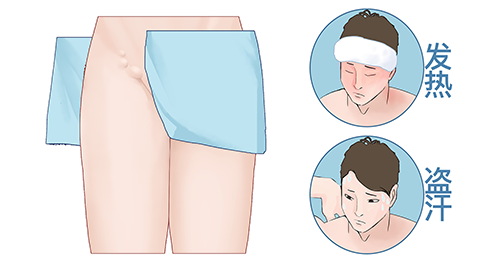What are the typical signs of early-stage lymphoma?
Generally, there is no established list of "10 typical early warning signs of lymphoma." Common early warning signs of lymphoma may include swollen lymph nodes, fever, night sweats, weight loss, and skin itching. If you experience any discomfort, it is recommended to seek medical attention promptly. Detailed explanations are as follows:

1. Swollen Lymph Nodes
Lymphoma cells proliferate extensively, invading the lymph nodes and causing an increase in cellular content and enlargement of the lymph nodes. This leads to painless, progressive lymph node swelling. The swollen lymph nodes are usually firm, smooth-surfaced, and movable in the early stages, but may fuse together as the disease progresses.
2. Fever
Tumor cells release pyrogenic substances such as tumor necrosis factor, which act on the body's thermoregulatory center, raising the temperature set point and subsequently causing fever. The fever may be persistent or intermittent, and antibiotic treatment is often ineffective.
3. Night Sweats
The metabolically active tumor tissue produces certain metabolic byproducts or releases cytokines that affect the autonomic nervous system, leading to abnormal sweat gland secretion and episodes of night sweats. In severe cases, the sweating may soak through clothes and bedding, and sweating usually stops upon waking.
4. Weight Loss
Due to the rapid proliferation of lymphoma cells consuming large amounts of energy, and possible impairment of digestive function caused by the tumor, patients may experience loss of appetite and reduced food intake, resulting in significant weight loss within a short period.
5. Skin Itching
Lymphoma cells may produce certain bioactive substances, such as histamine and proteases, which can stimulate skin nerve endings, causing localized or generalized itching without obvious skin lesions.
These symptoms are not unique to lymphoma and may also occur in other diseases. If one or more of the above symptoms appear, timely medical consultation and thorough examination are necessary to determine the cause and achieve early detection, early diagnosis, and early treatment. In daily life, maintaining a healthy lifestyle—including balanced nutrition, moderate exercise, and regular sleep patterns—can help enhance the body's immune system.







